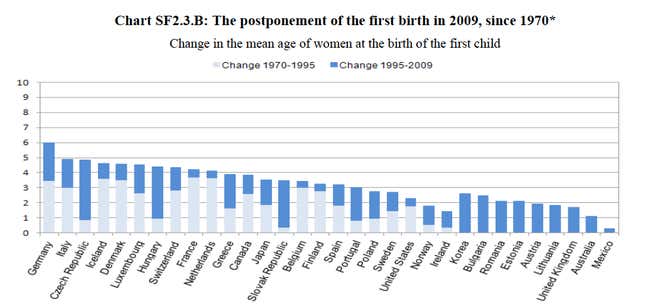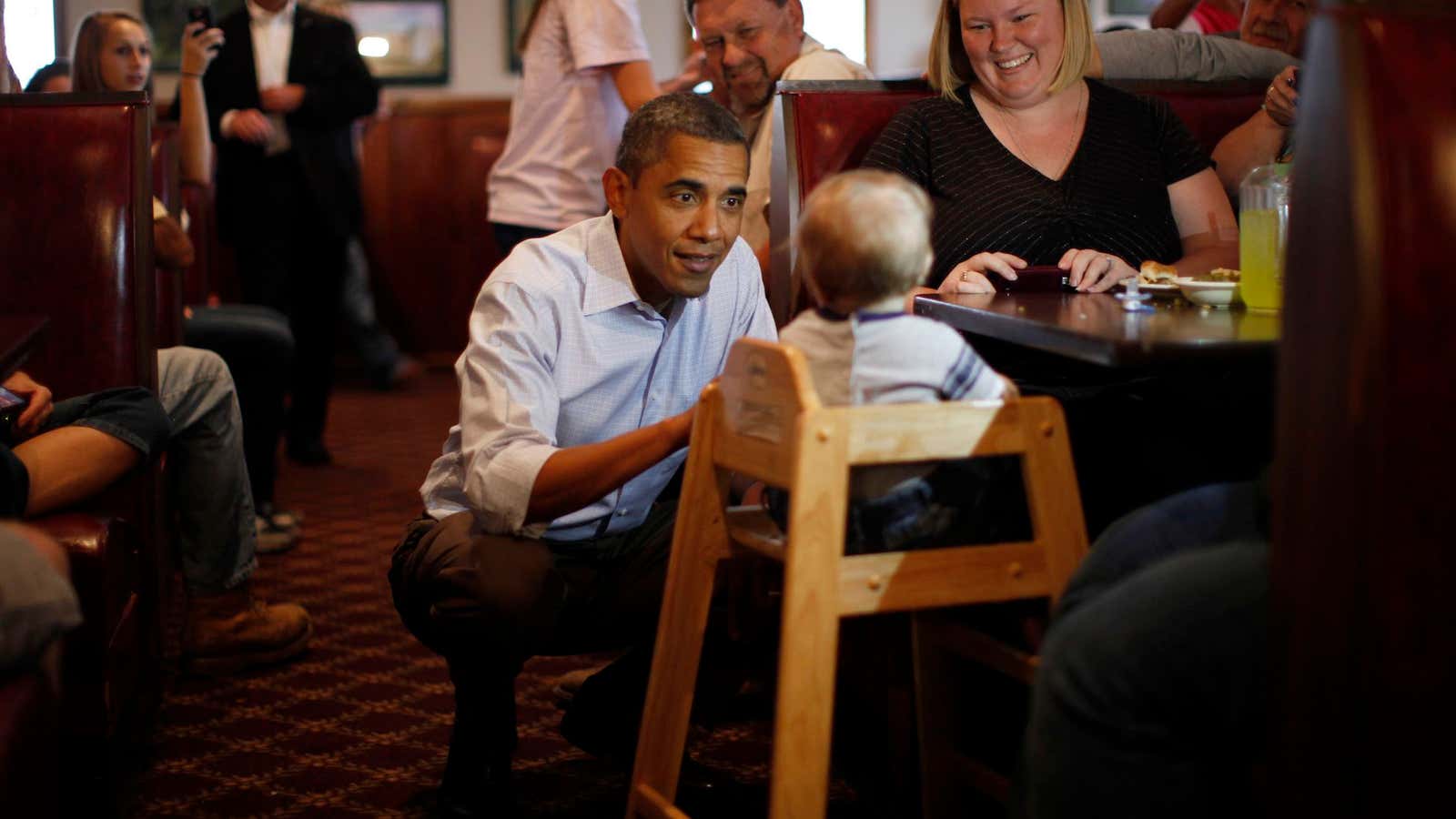The first time I saw an infant at a raucous concert in Brooklyn, NY, I was shocked. I was in my late 20s and had had it with the abrasive noise and spilled beer after about 30 minutes; I could hardly imagine how accosted the baby felt. Good thing the parents had him outfitted in giant, noise-cancelling baby headphones.
I chalked up this experience to the foibles of culture-crazed Brooklynites who stumble begrudgingly into parenthood. But as it turns out, this kind of baby-toting at grown-up outings is no longer limited to American metropoles like New York or San Francisco. More parents globally are hauling their tots to shows and restaurants once mostly considered adults-only.
And more establishments are imposing restrictions or outright bans. A slew of restaurants in Korea have closed their doors to children recently because of safety and legal concerns. Cafes in Berlin have banned strollers and created child-free zones. AsiaAir created a ”quiet zone” for fliers age 12 and above. Malaysia Airlines banned children under age 2 in first class. In Texas and Pennsylvania, restaurants have banned kids to placate customers who go out to dinner to escape their own.
There are strong feelings on both sides. Parents who want to include their children in adult outings feel they’re no more burdensome than the loud talkers or drunken prom-goers at the next table. Naysayers say the kids are a nuisance or a danger—and often point the finger of blame at more permissive parenting among the middle classes.
Across the globe, more parents are having children later in life, often at a time-intensive stage of their career when every spare moment with one’s children counts.

In the US, sociologists and parenting experts call this tendency over-parenting, “helicopter parenting” or even “death grip parenting.” Its main causes are three-fold, according to a New Yorker interview with Hara Estroff Marano, author of “A Nation of Wimps: The High Cost of Invasive Parenting”: the working mother, the insecurities bred by a globalized economy, and formative research on brain plasticity.
Working mothers who can’t spend time with their children while at the office resort to smothering them on nights and weekends. Parents increasingly fear their children will face competition from brighter tikes from other countries (this, by the way, applies to all parents, from the US to Germany to China), and that the little darlings will stand a better chance if their every moment is carefully supervised. And finally, Marano says middle-class parents have latched onto research from the 1990s that suggests the infant brain is sculpted by stimulation in the first few years of life, and are convinced that bébé should be given every possible exposure—including fine dining establishments.
Whatever the reasons, all the trends point to kids being an ever-larger presence in places where they were rarely seen, much less heard. For those who find that an intolerable invasion, the increasing number of kid-free establishments may provide small mercy.
